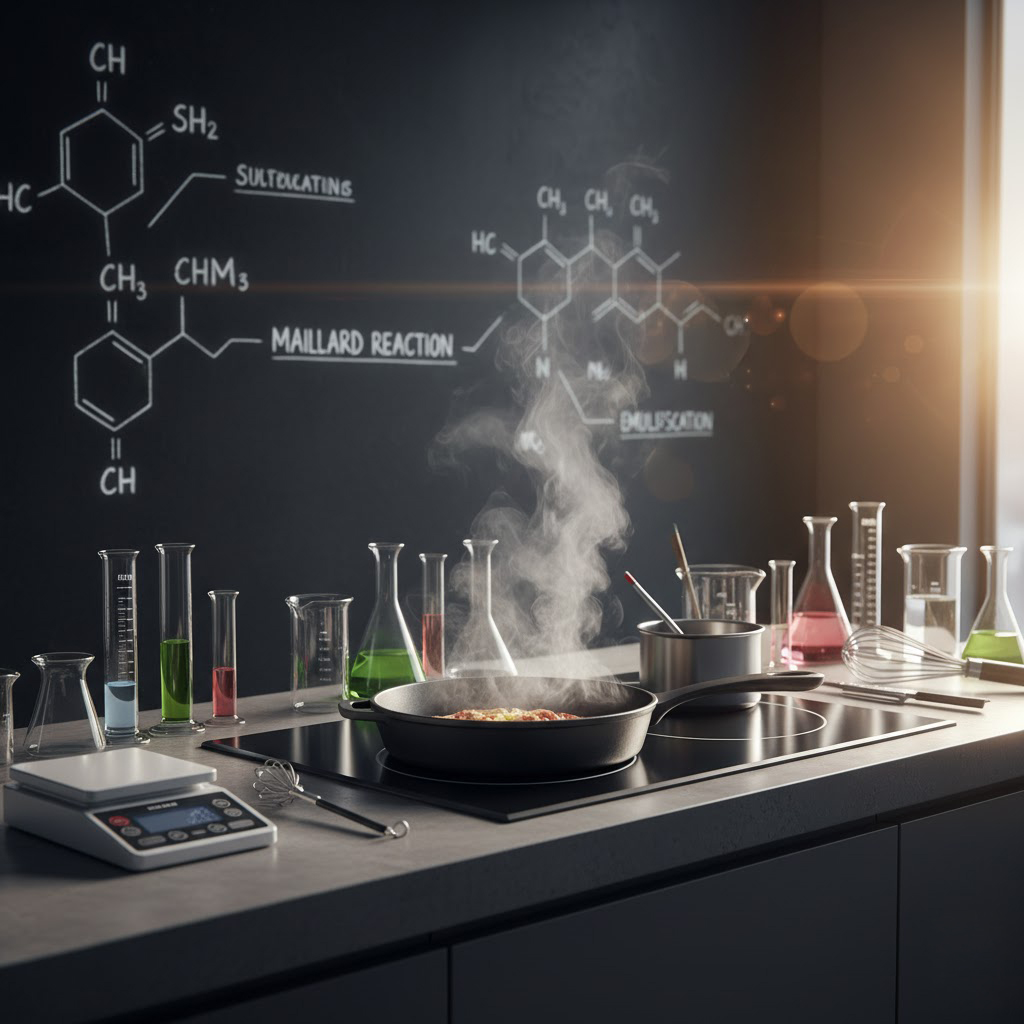
Cooking Science 101: The Chemistry of Cooking, Heat Reactions, and Kitchen Experiments
Dive into the fascinating world of culinary chemistry with our interactive exploration of heat reactions, cooking techniques, and kitchen experiments. Get ready to revolutionize your meals with newfound knowledge of the science behind your favorite dishes.
Heat Reactions: Searing, Maillarding, and Beyond
Imagine a world where your steak is perfectly seared, your bread boasts a golden-brown crust, and your baked goods rise to perfection. Sounds like the stuff of culinary dreams, right? The secret lies in understanding heat reactions.
Did you know? Searing creates the Maillard reaction, which adds complex flavors and beautiful color to your food.
The Art of Caramelization: Sweetening Your Dishes
Caramelizing sugar isn’t just for desserts; it adds depth and dimension to a variety of dishes. From savory glazes to sweet confections, learn how to control caramelization to achieve your desired taste.
Tip: For perfect caramelization, keep a close eye on the color and avoid overheating.
Acids, Bases, and pH: Balancing Flavors
Delicate balance is key when it comes to acidity and alkalinity in your dishes. Understand the role of acids and bases in food chemistry and learn how to manipulate pH levels for a perfect flavor balance.
Fact: Vinegar, lemon juice, and wine are examples of acids commonly used in cooking.
Emulsification: A Whisked Adventure
Combining oil and water might seem impossible, but emulsifiers make it a reality. Master the art of creating stable emulsions in everything from salad dressings to mayonnaise.
Trick: Eggs are natural emulsifiers, so they’re perfect for making homemade mayonnaise.
Kitchen Experiments: Cooking Hacks and Innovations
Curiosity is the key to culinary innovation. Try these simple experiments to learn how everyday ingredients can transform your cooking. From carbonated cakes to ice-cold water for crispy fries, there’s always room for scientific wonder in the kitchen.
Did you know? You can use baking soda as a fire extinguisher in small kitchen fires.
Unlock the Secrets of Cooking Science
With this newfound knowledge of cooking science, heat reactions, and kitchen experiments, you’re ready to transform your culinary creations. Don’t be afraid to get creative and test out your own kitchen hacks! The world of food is a delightful blend of art and science.
Share your cooking science discoveries with us, and let’s keep the conversation going!
